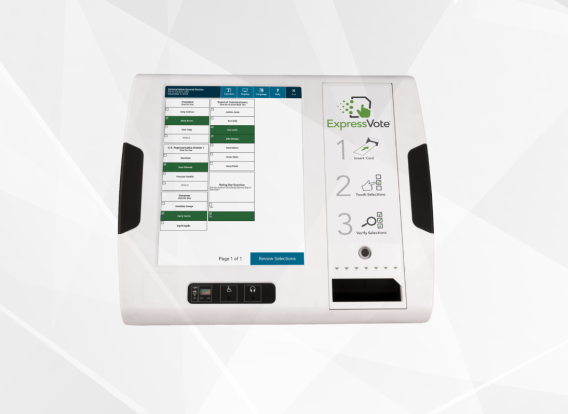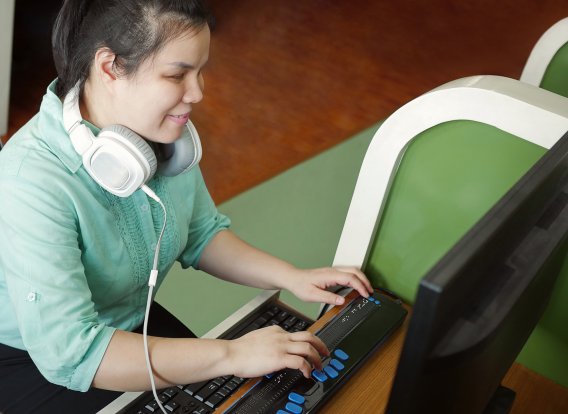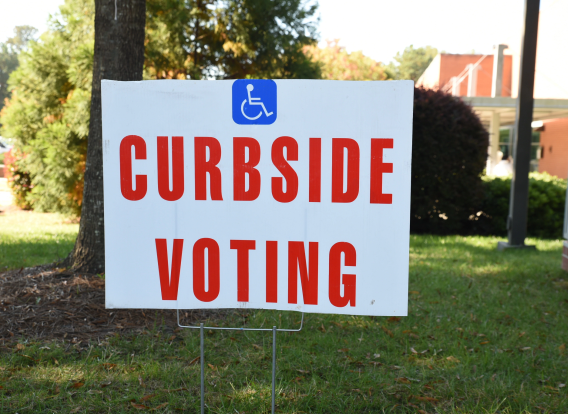Information for Voters with Disabilities
Federal and state laws require early voting locations and Election Day polling sites to be accessible to all voters. All voters with disabilities have the right to vote privately and independently. They also have the right to cast their ballots at an accessible polling place with voting machines for voters with disabilities. If you are aware of problems or potential problems with accessibility, please contact the us at 704-336-2133.
Accessible Voting Equipment

Election Systems ExpressVote
The ExpressVote Universal Voting System uses touch-screen technology that produces a paper record for tabulation. Mecklenburg County Board of elections uses this hardware as an assistive technology to support the needs of voters with visual limitations.
Accommodations
Absentee for Visually Impaired
If you are a visually impaired voter who has requested an accessible ballot and have been informed that your ballot is available, select this option to access your ballot. The deadline to complete and return your absentee by mail ballot in the portal is 5:00 PM on Election Day.


Curbside Voting
Every Election Day polling place and one-stop early voting site in North Carolina offers curbside voting for voters who are unable to enter the voting place without physical assistance due to age or disability. Through curbside voting, a voter can cast a ballot while in a vehicle outside the polling location.
Assistance for Voters in Care Facilities
A multipartisan assistance team, or “MAT,” is a group appointed by a county board of elections to provide assistance with mail-in absentee voting and other services to voters living at facilities such as hospitals, clinics, and nursing homes.

Voting Assistance
North Carolina law (§ 163-166.8.) allows any voter to receive assistance going in or out of a voting booth as well as preparing a ballot if the person providing help is a near relative or legal guardian of the voter. A near relative is a spouse, parent, grandparent, sibling, child, grandchild, mother- or father-in-law, son- or daughter-in-law, stepparent or stepchild.
Some voters may receive help from other assistants. If a voter meets any condition below, he or she is eligible to get help from a person of their choice, except the voter's employer or union representative, or an agent thereof. They are a voter who, because of:
- physical disability is unable to enter the voting booth without help.
- physical disability is unable to mark a ballot without help.
- illiteracy is unable to mark a ballot without help.
- blindness is unable to enter the voting booth or mark a ballot without help.
Any voter who qualifies for assistance may ask for help at any one-stop early voting site or Election Day polling place. When arriving at a voting place, the voter should request permission for help from the chief judge, stating the reasons he or she needs help. The voter may then identify the person he or she wants to help them. The assistant may go into in the voting booth with the voter. The assistant may not:
- try to persuade or induce any voter to cast a vote in a particular way
- make any record of anything that occurs in the voting booth
- reveal to any person how the assisted voter voted, unless the person giving help is called to testify in court

